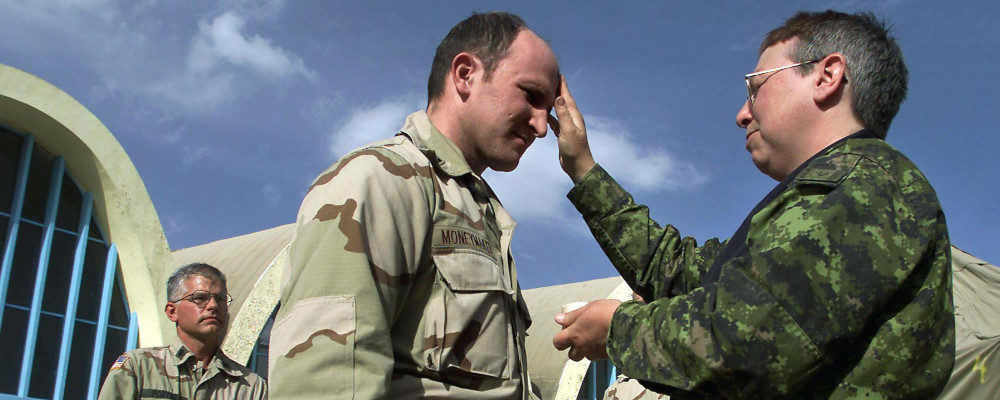Even casual news followers are likely aware that the Canadian Armed Forces (CAF) has a significant “culture” problem. Repeated sexual misconduct allegations1Sexual misconduct crisis in Canada’s military prompts calls for defence minister’s resignation prompting the resignation of several officials led to a series of reports,2“On April 29, 2021, the Department of National Defence announced that former Supreme Court Justice Louise Arbour would lead an Independent External Comprehensive Review into Sexual Misconduct and Sexual Harassment in the Department of National Defence and the Canadian Armed Forces.” https://learn.cardus.ca/e/682833/rnal-comprehensive-review-html/7ltql/513740654?h=tdhHoBQjWtfQON6zcyWHmZdC-ssbrTJWxadm8F4OUWQ including two from retired Supreme Court justices, and a mandate to a new Minister of Defence to ensure that her “immediate priority is to take concrete steps to build an inclusive and diverse Defence Team, characterized by a healthy workplace free from harassment, discrimination, sexual misconduct and violence.”3“As Minister of National Defence, your immediate priority is to take concrete steps to build an inclusive and diverse Defence Team, characterized by a healthy workplace free from harassment, discrimination, sexual misconduct and violence. This includes bringing forward the necessary reforms on a priority basis to create the foundation for meaningful and lasting change in the Canadian Armed Forces (CAF), a vital national institution.” https://learn.cardus.ca/e/682833/ational-defence-mandate-letter/7ltqp/513740654?h=tdhHoBQjWtfQON6zcyWHmZdC-ssbrTJWxadm8F4OUWQ
This is the context into which another report (there have been over 40, including two by retired justices), this one from the National Defence Advisory Panel on Systemic Racism and Discrimination, landed. The few media stories about it focused on overcoming the ways racism, for example, harmed CAF recruitment.
I was aware of the report, but it took a colleague to bring to my attention that there was more in it than the headlines suggested. In a section entitled “Redefining Chaplaincy”, the report notes with concern and disapproval the belief systems of various religious organizations that have chaplains in the army:
For example, some churches’ exclusion of women from their priesthoods violates principles of equality and social justice, as do sexist notions embedded in their religious dogmas. In addition, certain faiths have strict tenets requiring conversion of those they deem to be “pagan,” or who belong to polytheistic religions. These faiths’ dogmas and practices conflict with the commitment of the Defence Team to value equality and inclusivity at every level of the workplace.
If the Defence Team rejects gender discrimination, anti-Indigenous discrimination, and racialized discrimination in every other area and is working hard to remove systemic barriers to the employment of marginalized people, it cannot justify hiring representatives of organizations who marginalize certain people or categorically refuse them a position of leadership.
The report notes it isn’t its place to evaluate individual religions, but since “there are varying degrees of misogyny, sexism and discrimination woven into the philosophies and beliefs of some mainstream religions currently represented in the cadre of chaplains in the CAF,” the report recommends that the military:
“Do not consider for employment as spiritual guides or multi-faith representatives Chaplaincy applicants affiliated with religious groups whose values are not aligned with those of the Defence Team.”
Another recommendation specifically noted concerns with “the Abrahamic faiths.”
Where to start? Somehow the presence of Christian, Jewish, or Muslim chaplains (who, if the armed forces are reflective of the overall population, collectively represent about 70 percent of the population)4“According to the 2011 National Household Survey, the largest religion in Canada was Christianity. About 22.1 million people—or just over two-thirds (67.3%) of the population—reported that they were affiliated with a Christian religion. Catholics were the largest Christian religious group in 2011, at 12.8 million people. In 2011, about 2.4 million people, or 7.2% of Canada’s population, reported affiliation with Muslim, Hindu, Sikh and Buddhist religions. This was up from 4.9% a decade earlier, as recorded in the 2001 Census. The largest of these religions was Muslim, with just over one million individuals identifying themselves as such in 2011, representing 3.2% of the nation’s total population. The 2011 National Household Survey data also showed that roughly 329,500 people identified themselves as Jewish, 1.0% of the population. An additional 64,900 people reported that they were affiliated with traditional Aboriginal spirituality.” https://learn.cardus.ca/e/682833/x-2014001-section03-33-eng-htm/7ltqz/513740654?h=tdhHoBQjWtfQON6zcyWHmZdC-ssbrTJWxadm8F4OUWQ is problematic and contributes to the military’s toxic culture. To be sure, not all of them agree with the official religious tenets that are mentioned as offensive in the report: concern about same-sex relationships and a traditional view of gender and sexuality; distinguishing the roles of men and women within their faith; rejecting polytheism. There are differences within as well as between faith groups on these—and many other questions—within Canada. But the report concludes:
“The Defence Team cannot consider itself supportive of inclusivity when it employs as chaplains members of organizations whose values are not consistent with National Defence’s ethics and values—even if those members express non-adherence to the policies of their chosen religion.”
Translation: even if you are totally onside with the culturally mainstream “progressive” views on these issues, simply being a member of or identifying with a faith group that isn’t disqualifies you from serving in the military as a chaplain. Or at least, so this panel of experts recommends.
Have the authors of this report, reputable leaders with credentials and careers in public service, all been so blinded to their worldview that they can write their report without realizing the offence it provokes?
We are talking about the role of chaplaincy here, a vocation that seeks to serve and provide spiritual support. In a military context, the need for that support is intensified by the very real life and death risks that those in the military undertake as an ordinary part of their work. When the authors of the report read the Canadian Charter of Rights and Freedoms with freedom of conscience and religion at the head of Section 2, which lists our fundamental freedoms, what understanding of religion do they have?
The relevant philosophical term here is “social imaginary”, or the broadly shared image of the ideal society. The authors of this report clearly imagine a stolidly secular world with only a little corner left for religion. My non-philosophical way of explaining it references birds and fish. A fish living in the water isn’t against flying. It cannot imagine what flying is, because it has only and can only imagine living in water. Flying isn’t something you are for or against in the deep blue sea. Similarly, a bird flies freely in the air and cannot imagine what swimming is like. Birds and fish have a rather limited social imaginary. That’s not unlike the CAF report’s authors. In their secular framework, references to the transcendent make about as much sense as flying does to a goldfish or swimming does to a goldfinch.
But Canada isn’t a non-religious deep blue sea. Our history, constitution and core values explicitly recognize “the supremacy of God and the rule of law.” They cannot simply be recommended out of relevance in a misguided aspiration to “do something” about the military’s very real problems. I don’t believe the authors are necessarily as ill-willed as their words suggest and my own approach to commentary is to try to avoid labels. But if I check a dictionary, what is here comes pretty close to what is usually defined as bigotry. An institution that self-admittedly is struggling with racism and sexism should look elsewhere when seeking solutions.




